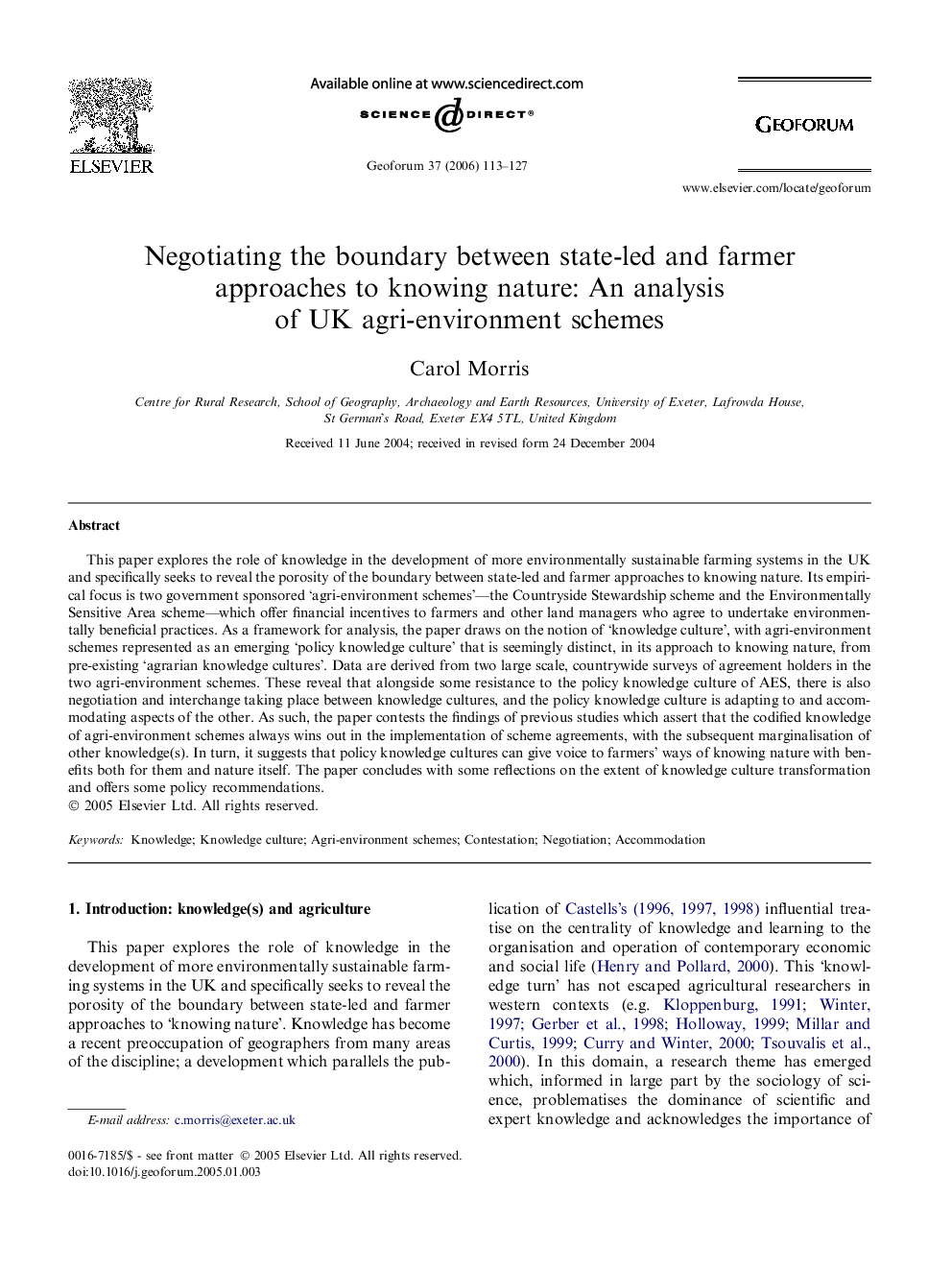| Article ID | Journal | Published Year | Pages | File Type |
|---|---|---|---|---|
| 5075255 | Geoforum | 2006 | 15 Pages |
Abstract
This paper explores the role of knowledge in the development of more environmentally sustainable farming systems in the UK and specifically seeks to reveal the porosity of the boundary between state-led and farmer approaches to knowing nature. Its empirical focus is two government sponsored 'agri-environment schemes'-the Countryside Stewardship scheme and the Environmentally Sensitive Area scheme-which offer financial incentives to farmers and other land managers who agree to undertake environmentally beneficial practices. As a framework for analysis, the paper draws on the notion of 'knowledge culture', with agri-environment schemes represented as an emerging 'policy knowledge culture' that is seemingly distinct, in its approach to knowing nature, from pre-existing 'agrarian knowledge cultures'. Data are derived from two large scale, countrywide surveys of agreement holders in the two agri-environment schemes. These reveal that alongside some resistance to the policy knowledge culture of AES, there is also negotiation and interchange taking place between knowledge cultures, and the policy knowledge culture is adapting to and accommodating aspects of the other. As such, the paper contests the findings of previous studies which assert that the codified knowledge of agri-environment schemes always wins out in the implementation of scheme agreements, with the subsequent marginalisation of other knowledge(s). In turn, it suggests that policy knowledge cultures can give voice to farmers' ways of knowing nature with benefits both for them and nature itself. The paper concludes with some reflections on the extent of knowledge culture transformation and offers some policy recommendations.
Related Topics
Social Sciences and Humanities
Economics, Econometrics and Finance
Economics and Econometrics
Authors
Carol Morris,
